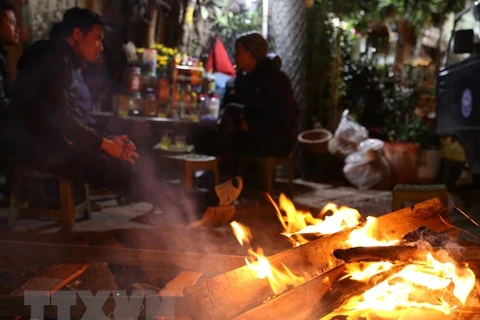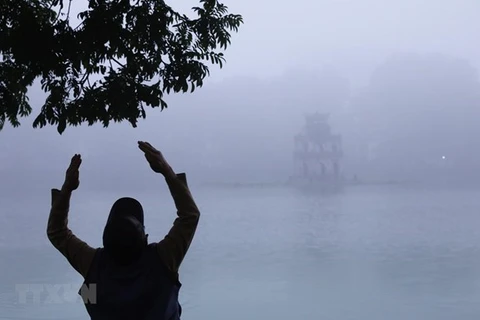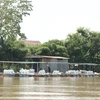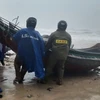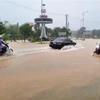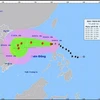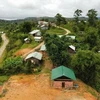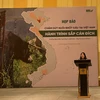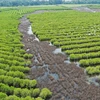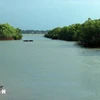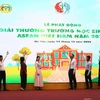Hanoi (VNA) – A strong cold spell engulfed the entire northern Vietnam on January 8 and expanded to the north central and central regions, causing medium to heavy rains in several areas, according to the National Centre for Hydro-Meteorological Forecasting.
The northern and north central regions are in the grip of biting cold, with the hardest hit being the northern mountainous provinces of Lao Cai, Tuyen Quang, Ha Giang, Cao Bang and Bac Can where the mercury drops to around 7 – 10 degrees Celsius at the lowest and even hits below zero in mountainous areas. Frost and sleet are expected in some locations.
The cold wave lowers temperatures to 13 – 17 degree Celsius in central provinces from Quang Binh to Quang Ngai while the Central Highlands region also experiences cold weather.
In response to the cold conditions, weather forecast centres are asked to increase daily weather updates and reports, particularly those in ethnic languages for ethnic minorities living in remote and mountainous regions, and provides advice to help people working outdoors protect themselves from cold-weather hazards.
Local authorities are urged to inform tourists on ice or frost-prone areas. Special warnings must be issued for tourists at at-risk areas.
Meanwhile, schools are advised to cancel classes and outdoor activities./.
The northern and north central regions are in the grip of biting cold, with the hardest hit being the northern mountainous provinces of Lao Cai, Tuyen Quang, Ha Giang, Cao Bang and Bac Can where the mercury drops to around 7 – 10 degrees Celsius at the lowest and even hits below zero in mountainous areas. Frost and sleet are expected in some locations.
The cold wave lowers temperatures to 13 – 17 degree Celsius in central provinces from Quang Binh to Quang Ngai while the Central Highlands region also experiences cold weather.
In response to the cold conditions, weather forecast centres are asked to increase daily weather updates and reports, particularly those in ethnic languages for ethnic minorities living in remote and mountainous regions, and provides advice to help people working outdoors protect themselves from cold-weather hazards.
Local authorities are urged to inform tourists on ice or frost-prone areas. Special warnings must be issued for tourists at at-risk areas.
Meanwhile, schools are advised to cancel classes and outdoor activities./.
VNA

